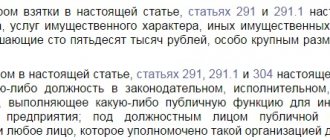1. The following are recognized as aggravating circumstances: a) recidivism of crimes; b) the occurrence of grave consequences as a result of the commission of a crime; c) committing a crime as part of a group of persons, a group of persons by prior conspiracy, an organized group or a criminal community (criminal organization); d) a particularly active role in the commission of a crime; e) involvement in the commission of a crime of persons who suffer from severe mental disorders or are in a state of intoxication, as well as persons who have not reached the age at which criminal liability begins; f) committing a crime motivated by political, ideological, racial, national or religious hatred or enmity, or motivated by hatred or enmity against any social group; f_1) committing a crime out of revenge for the lawful actions of other persons, as well as in order to conceal another crime or facilitate its commission; g) commission of a crime against a person or his relatives in connection with the performance of official activities by this person or the performance of a public duty; h) committing a crime against a woman who is known to be pregnant by the perpetrator, as well as against a minor, another defenseless or helpless person or a person dependent on the perpetrator; i) committing a crime with particular cruelty, sadism, mockery, and torture for the victim; j) committing a crime with the use of weapons, ammunition, explosives, explosive or simulating devices, specially manufactured technical means, narcotic drugs, psychotropic, potent, poisonous and radioactive substances, medicinal and other chemical and pharmacological preparations, as well as with the use of physical or mental coercion; k) committing a crime during a state of emergency, natural or other public disaster, as well as during mass riots; l) committing a crime using the trust placed in the perpetrator by virtue of his official position or contract; m) committing a crime using the uniform or documents of a government representative; o) commission of a deliberate crime by an employee of an internal affairs body;
o) commission of a crime against a minor (minor) by a parent or other person who is charged by law with the responsibility for raising the minor (minor), as well as by a teacher or other employee of an educational organization, medical organization, organization providing social services, or other organization, obligated to supervise the minor (minor); p) committing a crime for the purpose of promoting, justifying and supporting terrorism.
1.1. The judge (court) imposing the punishment, depending on the nature and degree of public danger of the crime, the circumstances of its commission and the identity of the perpetrator, may recognize as an aggravating circumstance the commission of a crime while intoxicated caused by the use of alcohol, drugs or other intoxicating substances.
2. If an aggravating circumstance is provided for by the relevant article of the Special Part of this Code as a sign of a crime, it in itself cannot be taken into account again when assigning punishment.
Text of Article 6.3 Part 2 of the Code of Administrative Offenses “Violation of the self-isolation regime”
Code of Administrative Offenses of the Russian Federation Article 6.3. “Violation of legislation in the field of ensuring sanitary and epidemiological welfare of the population”
1. Violation of legislation in the field of ensuring the sanitary and epidemiological well-being of the population, expressed in violation of current sanitary rules and hygienic standards, failure to comply with sanitary, hygienic and anti-epidemic measures - punishment: warning or imposition of an administrative fine on citizens in the amount of one hundred to five hundred rubles... 2 The same actions (inaction) committed during an emergency situation or when there is a threat of the spread of a disease that poses a danger to others, or during the period of restrictive measures (quarantine) in the relevant territory , or failure to comply within the prescribed period with a legal order issued during the specified periods (decrees) or requirements of the body (official) exercising federal state sanitary and epidemiological supervision to carry out sanitary and anti-epidemic (preventive) measures - entail the imposition of an administrative fine on citizens in the amount of fifteen thousand to forty thousand rubles ... (part 2 introduced by the Federal Law of 01.04.2020 N 99-FZ)
Commentary on Article 63 of the Criminal Code of the Russian Federation
1. In the presence of one or more circumstances provided for in Part 1 of Art. 63, the court is obliged to increase the punishment of the perpetrator within the limits of the sanction. However, the law itself does not provide for a mechanism for the influence of one or another aggravating circumstance on the imposed punishment.
2. The list of aggravating circumstances is exhaustive and is not subject to broad interpretation, and their establishment is essential for the correct solution to the issue of individualization of punishment.
3. Federal Law No. 14-FZ of February 29, 2012 supplemented the list of aggravating circumstances with paragraph “p”, which provides for increased criminal liability for the commission of a crime against a minor by a parent or other person who is entrusted with educational responsibilities by law minor (minor), teacher or other employee of an educational, training, medical or other institution, obliged to supervise the minor (minor), i.e. special subject.
In addition, paragraph “k” of Part 1 of Art. 63, which contains a list of possible instruments and means of committing a crime, was supplemented by Federal Law No. 18-FZ of March 1, 2012 with an indication of narcotic drugs, psychotropic and potent substances.
Thus, the following are distinguished: weapons, ammunition, explosives, explosive or simulating devices, specially manufactured technical means, narcotic drugs; psychotropic, potent, toxic and radioactive substances, medicinal and other chemical and pharmacological preparations. In addition, the use of physical or mental coercion is highlighted.
4. The commission of a crime by a person while intoxicated caused by the use of alcohol, narcotic drugs, psychotropic or other intoxicating substances is not classified by law as aggravating circumstances (clause 10 of the Resolution of the Plenum of the Supreme Court of the Russian Federation dated January 11, 2007 No. 2 “On practice assignment of criminal punishment by the Courts of the Russian Federation"). However, on the one hand, it acts as a qualifying and especially qualifying feature of the crime provided for in Art. 264 of the Criminal Code, and on the other hand, can be taken into account as a negative characteristic of the personality of the perpetrator.
5. If an aggravating circumstance is provided for by the relevant article of the Special Part of the Criminal Code as a qualifying element of a crime, it in itself cannot be taken into account again when assigning punishment. So, for example, liability for murder committed with extreme cruelty is provided for in paragraph “d” of Part 2 of Art. 105 of the Criminal Code. When imposing a punishment, the court should not refer to paragraph “i” of Part 1 of Art. 63, since the legislator himself took this circumstance into account in the wording of paragraph “e” of Part 2 of Art. 105 of the Criminal Code.
How does a violation of Article 6.3 Part 2 of the Code of Administrative Offenses occur during self-isolation during the coronavirus epidemic in Russia
- During the period of self-isolation (quarantine) in force in the territory, a person moved more than 100 meters from home without permits. Or a group of people of more than 2 people who do not live together in the same apartment (house) has gathered on the street. At the same time, a person (a group of more than 2 people) met a patrol consisting of a police officer, national guard, etc.
Other people (for example, neighbors) may also call the police to report a violation of self-isolation. This often happens when a group of 2 or more people drink, communicate loudly on the street, or play loud music from the car late at night, disturbing neighbors from sleeping
.
- A protocol on violation of the self-isolation regime under Article 6.3 Part 2 of the Code of Administrative Offenses “Violation of the self-isolation regime” is drawn up in relation to the detainee(s). The protocol indicates (according to Article 28.2 of the Administrative Code)
- date and place of its compilation,
- position, surname and initials of the person who compiled the protocol,
- information about the person against whom a case of administrative offense has been initiated,
- last names, first names, patronymics, residential addresses of witnesses
- place, time of commission and event of an administrative offense
- an article of this Code or a law of a constituent entity of the Russian Federation providing for administrative liability for this administrative offense
- explanation of the individual or legal representative of the legal entity against whom the case has been initiated
- other information necessary to resolve the case
- When drawing up a protocol about an administrative offense under Article 6.3 Part 2 of the Code of Administrative Offenses, violation of the self-isolation regime to an individual or the legal representative of a legal entity against whom a case of an administrative offense has been initiated, as well as other participants in the proceedings their rights and responsibilities are explainedprovided for by the Code of Administrative Offences, what is recorded in the protocol
- An individual or a legal representative of a legal entity against whom a case of an administrative offense has been initiated under Article 6.3 Part 2 of the Code of Administrative Offenses “Violation of the self-isolation regime” should be given the opportunity to familiarize themselves with the protocol on the administrative offense . These persons have the right to submit explanations and comments on the contents of the protocol, which are attached to the protocol.
What happens after the protocol is drawn up
- After drawing up a protocol on an administrative offense under Art. 6.3 h 2 of the Code of Administrative Offenses “Violation of the self-isolation regime” a resolution on an administrative offense is issued. Indicating the amount of the fine. A decision with the amount of the fine can be issued either by an authorized person of the Ministry of Internal Affairs or by a court. Most often the court.
- Resolution on an administrative offense under Art. 6.3 h 2 of the Code of Administrative Offenses “Violation of the self-isolation regime” (issued by a court or an authorized official of the Ministry of Internal Affairs) can be appealed within 10 calendar (!) days from the date of delivery or receipt by mail at the registration address.
If you have not received the Resolution in your hands. The resolution is sent to the offender at his registration address (!) registered mail within three days from the date of issuance of the said resolution (clause 2 of Article 29.11 of the Administrative Code). You can't refuse to receive it. Remember the mailing ID. Because Russian Post can take a long time to deliver it. And then it is the identifier (by which you can prove the date of delivery to you) that will be the basis for extending the period of 10 calendar (!) days when challenging the Resolution.
The protocol cannot be protested. Only a resolution! Objections to the protocol can be voiced at the court hearing. Plus, comments on the protocol can be made in writing during its preparation and/or review.
- The statute of limitations for bringing to administrative liability under Art. 6.3 “Violation of legislation in the field of ensuring sanitary and epidemiological welfare of the population” – 1 year (clause 1, article 4.5 of the Administrative Code). That is, if 1 year has passed since the date of the offense, then the Resolution cannot be issued. For example, if it was committed on April 4, then the expiration date will be April 5 of the following year. If the statute of limitations expires, the case is closed without consequences for the offender.
It is also possible to close the case without issuing a fine under the amnesty act. If this article of the Code of Administrative Offenses is indicated in the amnesty act. The start date of the amnesty act is indicated in its text.
Aggravated punishment
The specific limits of punishment of the Criminal Code of the Russian Federation are determined only for recidivism in Article 68. The punishment for any recidivism will be no less than 1/3 of the longest term of the most severe punishment under the article prohibiting the specific act. The punishment may be less than this limit if there are mitigating circumstances.
Some nuances are also provided for when assigning punishments for crimes committed in complicity in Article 67 of the Criminal Code. A mandatory assessment of the role of the perpetrator in the crime, the impact of his participation on the result and the harm caused is assumed. Aggravating circumstances relating to a specific accomplice are taken into account only when determining the punishment for him personally.
In other circumstances, everything is decided by the judge, who is guided by his inner conviction.
The fundamental principle of punishment is justice . When appointing it, they take into account not only aggravating, but also mitigating circumstances, the list of which is not limited, the characteristics of the perpetrator, the conditions under which the act was committed and other factors.
If an aggravating circumstance is provided for by an article of the Criminal Code of the Russian Federation prohibiting a specific act, it is again not taken into account as a qualifying feature.
Did the article help you?
Not really
Where can I find information about the fine for violating Art. 6.3 h 2 of the Code of Administrative Offenses “Violation of the self-isolation regime”
- State Services portal. “Payment” tab. Section “Fines”.
- portal “Judicial Records Management” (in the case of new software there will be a link to the general portal) of the district court of the city district where the offense was committed.
Find the link “Search for information on cases.” It's written in pretty small blue letters below the date. - “Proceedings in civil and administrative cases” appears. Click on the “Change” link.
- Select “Proceedings in cases of administrative offenses (administrative offences)”. The corresponding form is displayed.
- In the “Last Name” field, enter your last name. Click on the “Find” button below.
- A list of all cases of administrative offenses in which this name is involved is issued
How to defend yourself on charges of violating Art. 6.3 h 2 of the Code of Administrative Offenses “Violation of the self-isolation regime”
- Most of the materials on violations during the coronavirus epidemic in Russia are returned by the courts without consideration, since the violators were not notified of the date, place and time of drawing up the protocol
- See the protocol requirements above. Any violations in its preparation lead to the nullity of the protocol.
- The main thing is to identify the offender. The main personal identification document is the passport of a citizen of the Russian Federation. If it is impossible to identify the offender, he is taken to the police station. To establish identity and draw up a protocol on an administrative offense. Oral information about oneself given by the offender cannot be his identification. Since the violator could have verbally given false information or information about another individual. Who at this time was observing the self-isolation regime.
- In many regions where there is coronavirus, easing of the self-isolation regime has been given at the level of regional leaders. For example, you can refer to local news and shift the responsibility to them for visiting large hypermarkets and retail markets located more than 100 meters away. These local news are based on the requirements of the Ministry of Industry and Trade of the Russian Federation MD-23185 dated 04/03/2020 (the full text of the requirements of the Ministry of Industry and Trade can be found here). In part 6 “Explain to citizens, local authorities, trade organizations that it is allowed to visit large hypermarkets and supermarkets that are not located near the places of residence of citizens, as well as markets and fairs. This measure is necessary to reduce the high concentration of customers in convenience stores and disperse people across different retail formats.” Therefore, if you were detained near a hypermarket or market, then in court or when giving explanations when drawing up a protocol, you can refer to this requirement of the Ministry of Industry and Trade.
- There is no requirement when detaining a certificate from the employer and/or government authorities allowing movement around the city during the coronavirus epidemic.
- When detained on the street under Article 6.3 Part 2 of the Code of Administrative Offenses “Violation of the self-isolation regime,” it is recommended to film the actions and interactions with the police on a smartphone. Since the legislation does not contain a ban on filming, with the exception of filming inside the premises of the Ministry of Internal Affairs and filming of investigators. You can read more here. What will happen if the filming is carried out on the premises of the Ministry of Internal Affairs is well described here.
- When appealing a fine under Article 6.3 Part 2 of the Code of Administrative Offenses “Violation of the self-isolation regime,” repeatedly emphasize in writing (highlighting it in dark) that you are not part of the group of people who are subject to strict quarantine measures during the coronavirus epidemic in Russia. That is, you did not come from abroad. You have not been in contact with an infected person. In any case, the opposite side did not provide such evidence. According to the Constitution, all doubts are interpreted in favor of the accused (clause 3 of Article 49 of the Constitution of the Russian Federation).
- In a written complaint, it is necessary to substantiate in as much detail and fully as possible the legality, necessity and unfoundedness of bringing to administrative responsibility in principle.
- You should not refer to reasons that are not serious (I wanted to get some fresh air, I needed to run down the street to stretch my legs, etc.) from the judge’s point of view. This will divert attention from the important component of appealing a fine.
- If the fine is imposed specifically under Article 6.3 Part 2 of the Administrative Code “Violation of the self-isolation regime,” then you need to insist in a written complaint on requalification under Art. 20.6.1 Code of Administrative Offences. Minimum penalties vary widely. In Art. 6.3 h 2 of the Code of Administrative Offenses minimum 15,000 rubles. Whereas according to Art. 20.6.1 Code of Administrative Offenses minimum 1,000 rubles. The basis for requalification is that you did not violate current sanitary rules and hygiene standards. This is precisely the basis of Article 6.3 Part 2 of the Code of Administrative Offences. Art. 20.6.1 Code of Administrative Offenses is a failure to comply with the rules of conduct in case of an emergency or the threat of one.
- Cases of administrative offenses provided for in parts 2 and 3 of Article 6.3 of the Code of Administrative Offenses, as well as Article 20.6.1 of the Code of Administrative Offenses, are considered by district courts. At the whim of the police, the case may end up in the magistrate's court. And if the magistrate made a decision on a fine, then it is clearly subject to cancellation.
Aggravating circumstances of criminal law
The list of aggravating conditions that are unconditionally taken into account when assigning punishment is given in Article 63 of the Criminal Code of the Russian Federation. There are 17 of them in total, according to the paragraphs of the article.
Circumstances negatively characterizing the perpetrator
1. Clause “a” of Article 63 of the Criminal Code of the Russian Federation - recidivism of crimes . Most people are greatly mistaken in believing that recidivism means committing crimes again. To some extent this is true, but it is not that simple. They speak of recidivism if a person commits an intentional crime, having previously been convicted of it.
When determining recidivism, only intentional crimes are taken into account. Acts with a careless form of guilt, for example, common careless crimes under Art. 264. Criminal Codes of the Russian Federation related to traffic violations that resulted in serious injury or death will not be taken into account.
A relapse can only occur if there is an unexpunged or unexpunged conviction for a previous intentional criminal act.
Convictions for acts cannot be taken into account:
- slight heaviness;
- occurred while a minor;
- for which the perpetrator was given a suspended sentence or the execution of the sentence was suspended, only on the condition that they were not cancelled.
2. Clause “c” of Article 63 of the Criminal Code of the Russian Federation - commission of a crime:
- Group, with the participation of two or more people.
- A group by prior conspiracy, when 2 or more people agreed in advance to commit it together.
- An organized group created specifically for illegal activities.
- As part of a criminal organization or community. They are structured groups of people with a single leadership, united to commit serious, especially serious criminal acts in order to obtain material benefits.
Such aggravating circumstances are highly likely to result in greater harm.
3. Point “d” - a particularly active role in the commission of a crime, which can be evidenced, for example, by the initiative to commit it, perseverance in order to achieve a more significant result;
4. Point “and” - committing a crime with particular cruelty, sadism, mockery, torment of the victim.
This aggravating circumstance is said to occur when excessive suffering is caused to the victim.
- Particular cruelty is evidenced by torture, the infliction of torture on the victim, his loved ones, and relatives.
- Sadism is characterized by receiving pleasure from the torment of the victim, which becomes the target of criminal behavior.
- Bullying - all kinds of humiliation, causing moral suffering to the victim, etc.
- Torment may include, for example, deprivation of sleep and food.
5. Point “k” - committing a crime using:
- weapons, ammunition, explosives, explosive devices simulating them;
- those. funds intentionally made for him;
- drugs, psychotropics, potent, poisonous, radioactive substances,
- medicinal and other drugs.
This aggravating circumstance includes the use of physical as well as mental coercion .
This aggravating circumstance combines generally dangerous means that significantly simplify the process of achieving a result for the criminal. They are dangerous for the victim and for others, and also indicate an extremely disrespectful attitude of the perpetrator towards objects protected by law.
Aggravating circumstances related to the special vulnerability of the victim and other persons
1. Point “d” - involvement of persons in a crime:
- with serious mental disorders, their presence and severity are determined by examination;
- in a drunken state, and the degree of intoxication is unimportant;
- at the age at which criminal liability is impossible, for some acts persons from 14 years of age are subject to it, and for others from 16 years of age.
These categories are united by the increased suggestibility of these groups of people; they simply succumb to the persuasion of attackers, often without realizing the illegality of their actions.
2. Point “h” - commission of a crime in relation to:
- Women who are pregnant, the condition of which the perpetrator was aware of.
- Juvenile. In Russia, these are children under 14 years of age.
- A helpless, defenseless person. These include, for example, elderly citizens, disabled people, etc.
- A person dependent on a criminal.
The combination of such victims into one point of the norm is due to their limited ability to resist the attack, correctly perceive and react to what is happening.
Circumstances associated with special trust in the criminal
1. Point “p” - commission of a crime against a minor:
- Father, mother, other person obliged to raise him.
- An employee of an organization who is obliged to supervise him. These include teachers, other employees of education, medicine, social services. protection and others.
Such crimes are especially dangerous due to the vulnerable and dependent position of the victim. These people have certain powers over the child, which makes it easier to commit a crime.
2. Point “m” - committing a crime using trust due to the official position of the perpetrator or an agreement.
3. Point “n” - committing a crime using uniforms, documents of a government representative, even fake ones.
4. Point “o” - commission of an intentional unlawful act by an employee of an internal affairs agency.
These conditions are united by the fact that when committing an illegal act, the perpetrator takes advantage of the victim’s special trust in him. It is caused by established relationships, respect and confidence in the integrity of government officials and organizations, which are based on the obligation of these individuals to protect the interests of citizens and ensure their protection.
Circumstances related to the legal actions of the victim
1. Point “g” - the commission of a crime against a person, his relatives, due to the performance of his official activities, the fulfillment of a public duty.
2. Paragraph “f.1” - the crime has the purpose of revenge for legal actions, as well as to hide another illegal act, to simplify its commission.
These two conditions imply law-abiding behavior of victims associated with:
- the exercise of their rights, for example, when the victim contacts law enforcement authorities with a report of unlawful behavior, a crime, files a lawsuit, etc.
- proper performance of official or public duties, when actions of the victim that are objectionable to the criminal were committed by him in the course of exercising official powers or public activities.
These aggravating circumstances must be the reason for the unlawful actions of the perpetrator.
Circumstances reflecting the convictions of the offender
1. Point “e” is a crime committed with the motives of political, ideological, racial and other hatred, enmity, also addressed to a separate category of people.
2. Point “r” - commission of a criminal act, the purpose of which is propaganda, justification, or support of terrorism.
The highest danger of these aggravating circumstances is associated with threats not only to specific people, order, but also to the state.
Other aggravating circumstances that increase punishment
1. Point “b” - grave consequences as a result of the crime. The issue of their assessment is decided at the discretion of the court individually. These may include serious illness, especially significant damage, death, etc.
2. Point “l” - commission of a crime when:
- state of emergency;
- natural disaster, etc.;
- armed conflict;
- military actions;
- riots.
This paragraph is highlighted due to the special management regime in the specified situations, in which the state apparatus is focused on their elimination. As a result, other areas of its regulation become more vulnerable, and the commission of crimes becomes easier.
There is also the eighteenth circumstance of Article 63 of the Criminal Code of the Russian Federation, which the court is not obliged, but has the right to consider as aggravating, taking into account the characteristics of the act and the criminal. This is a state of intoxication, which can be a consequence of the use of alcohol, drugs, psychotropics and other intoxicating substances.
This opportunity appeared not so long ago. The courts are given the right, based on the results of the consideration of the case, to conclude whether the intoxication of the criminal influenced the danger of his actions for society and how, whether it became more dangerous.
All of the above aggravating circumstances must be taken into account when determining the sentence and determining the punishment in the direction of tightening it, if they are established and confirmed.





